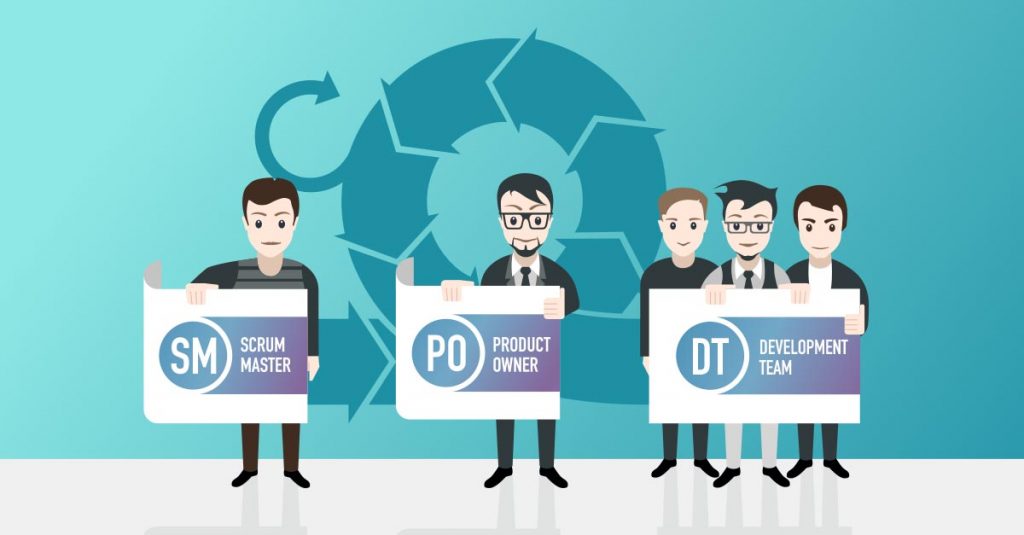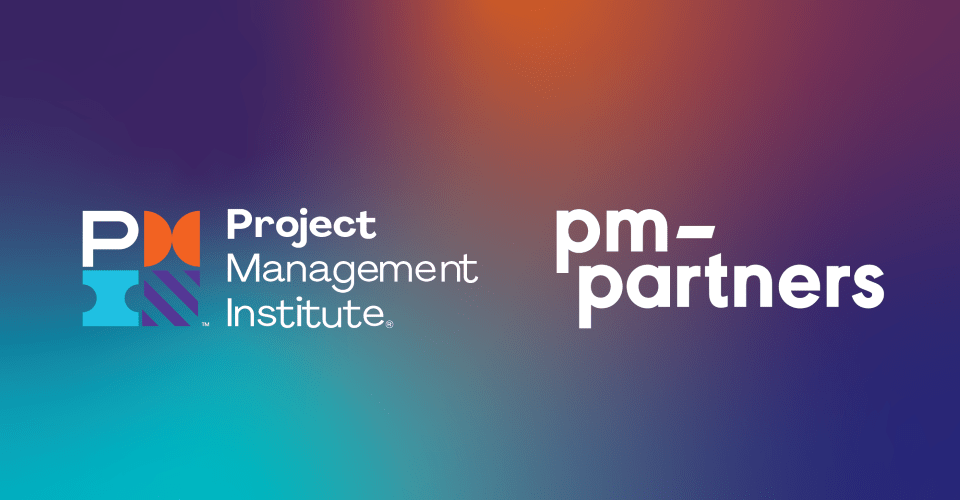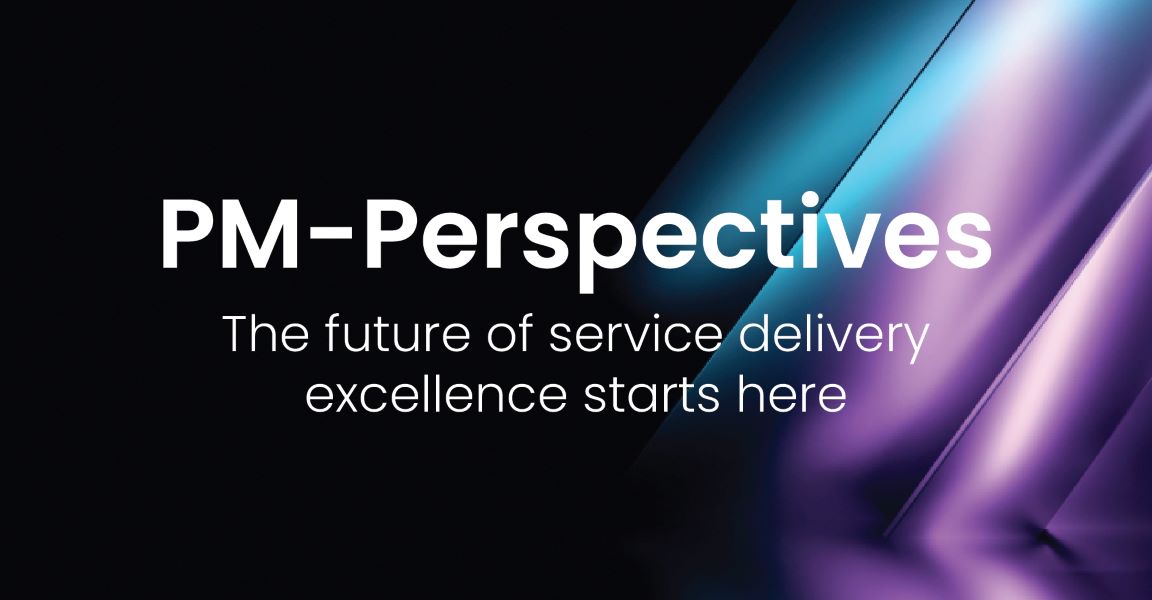The Agile Journey: What you need to know about the Scrum team
In the fourth instalment of The Agile Journey, we delve into the make-up of a Scrum team, specifically the roles, responsibilities and attributes of the two most pivotal players: the product owner and Scrum master.
Scrum is a popular agile method using an iterative time-boxed approach to product delivery. To work effectively, it relies on cross-functional, self-organised teams. Here, we look at the roles responsible for guiding and empowering the Scrum team/s – those people who are ultimately responsible for the success of each sprint and the delivered outcomes.
What do they do, why are they pivotal to success and what attributes should they possess?
The make-up of the Scrum team

First up, we have the product owner. As with all agile methods, the ‘voice of the customer’ needs to be heard. In Scrum, it’s the product owner who addresses the customer’s wants, needs and concerns. This role is responsible for gathering requirements and prioritising the product backlog.
An equally critical role is that of Scrum master: an expert in the Scrum framework and a servant leader for the team. The Scrum master promotes and supports Scrum by ensuring everyone understands what Scrum is, including its theory, practices, rules and values.
Then there’s the delivery team, those people directly involved in delivering requirements. These are the team members who estimate, organise and do the work.
Lastly, we have the extended team. This may include people who are not directly responsible for delivering a successful outcome, but who are either interested in the delivered outcome, or who need to interface with the team as they deliver, for example delivery leads, agile coaches and business stakeholders.
More about the product owner
The product owner is accountable for maximising the business value of the Scrum team’s work. They gather information from stakeholders and develop a prioritised list of requirements known as the backlog, so that high value items are developed first. In this way, they provide the delivery team with ‘what’ they need to work on.
Ultimately, the product owner has the final say on everything to do with the final product. They own the product and are accountable for it – as such, the product owner needs to have authority to decide what goes into the product.
What does a product owner do?
Put succinctly, the role of the product owner is about product value. The product owner is responsible for:
- The build and health of the Scrum team, ensuring that they can deliver end-to-end outcomes
- Optimising the value of the work the team performs
- Prioritising the items in the product backlog to best achieve overall objectives
- Ensuring that the product backlog is visible, transparent and clear to all, and shows what the team will work on next
- Working closely with the scrum master to remove impediments for the team
- Ensuring that the team has engaged with customer personas during the delivery of their work
- Deciding whether the work the team has delivered is ready for release.
Attributes of a good product owner
A successful product owner needs to be:
- Knowledgeable of the customer domain
- An effective communicator
- Able to engage and represent all key stakeholders
- Empowered
- Clear on the vision for the product
- Articulate in defining requirements
- Able to define what a successful outcome would look like
- Available at all times to the team/single point of contact.
More about the scrum master
The primary function of a scrum master is to be the scrum steward. They ensure the Scrum team embraces and executes Scrum practices, ceremonies and mindsets and will hold the team accountable for any team norms they’ve agreed on.
A common misconception is that the scrum master role is equivalent to a project manager. But where a project manager is a driver and decision maker, a scrum master is an enabler and teacher.
It’s their job to enable an optimal working environment and make sure Scrum is understood and enacted upon appropriately by the team and the organisation. This means the scrum master is like a coach to the team, not a manager of the team
What does a scrum master do?
Accountabilities and responsibilities of a scrum master include:
- Facilitating and coordinating timely, productive Scrum events and planning activities
- Enabling a productive environment where team members can work with maximium efficiency
- Ensuring the team adheres to and applies agile and scrum values, mindsets and practices
- Working with the product owner and management team to remove impediments to the team’s progress
- Shielding the team from external interruptions and distractions
- Facilitating discussion to resolve conflict within the team
- Promoting disclosure and transparency at all levels
- Ensuring continual improvement practices are applied.
Attributes of a good scrum master
A successful scrum master needs to be:
- An agile and Scrum enthusiast
- Knowledgeable of Scrum values, artefacts and events
- A talented facilitator and leader
- Skilled at coaching individuals and at the organisational level
- Supportive and protective of the team
- An expert unblocker and problem solver
- Persuasive and an effective negotiator
- Empathic and a good listener
- Open to continual learning and development.
The delivery team
While the product owner provides the delivery with ‘what’ they need to work on, the delivery team decides ‘how’ they will work on it.
The delivery team is self-organising and cross-functional. Traditionally, teams work best when co-located, although the trend towards remote work is seeing more Scrum teams featuring a mix of virtual and co-located workers.
What does the delivery team do?
Some of the accountabilities and responsibilities of the delivery team include:
- Embracing an agile mindset and incorporating Scrum and agile values and principles in all aspects of work
- Engaging with customer personas during delivery of work
- Working with the product owner to define ‘done’ criteria
- Delivering end-to-end outcomes that adhere to ‘done’ criteria
- Planning, organising and executing work items in line with prioritised requirements
- Actively participating in ceremonies and continuous improvement activities.
Getting Scrum ready
Scrum is easy to learn but often a challenge to implement. Whether you’re an individual pursuing a career in agile or an organisation in transition, increasing your/your team/s capability and understanding of Scrum is a critical part of the journey.
Individuals and teams should receive formal training in Scrum – especially those who will fulfil the roles of scrum master, product owner and scrum team member. Workshops should include agile and Scrum values, principles and roles. For more senior members of staff, like sponsors, customers and other stakeholders, it may be that short two to three hour briefing sessions on Scrum are more appropriate and a better use of their time.
But having an established Scrum team is only one part of the picture. It’s also worth considering the potential value add that comes from engaging expert agile/Scrum coaches, particularly in terms of increasing productivity and enhancing teamwork. Coaches can assist with scaling up, provide mentoring and run planning, review and retrospective meetings, sell the benefits of being Scrum ready, and help to ensure senior stakeholder buy-in.
Keen to take on a pivotal role implementing Scrum in your organisation? Consider our Scrum Product Owner Certified (SPOC®) course, or develop your scrum skills with Scrum Master Certified (SMC®). Alternatively, call one of our professional development consultants today on 1300 70 13 14.








